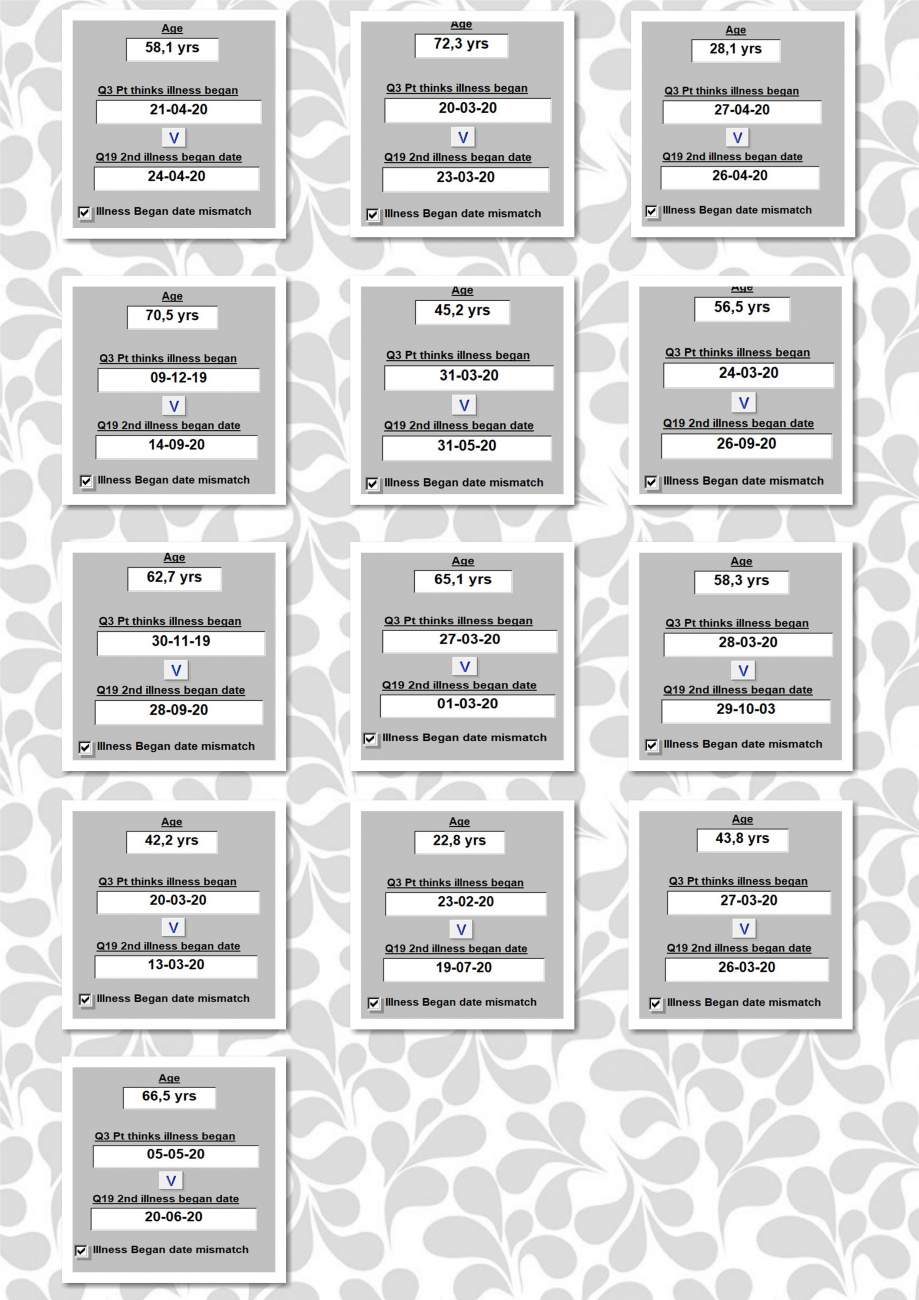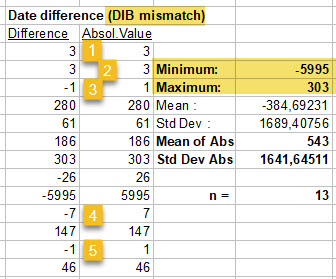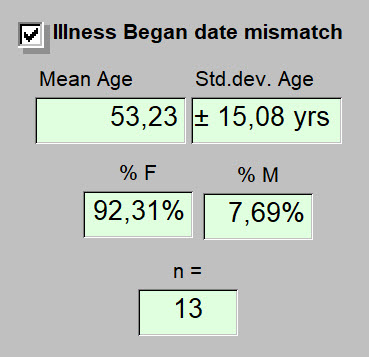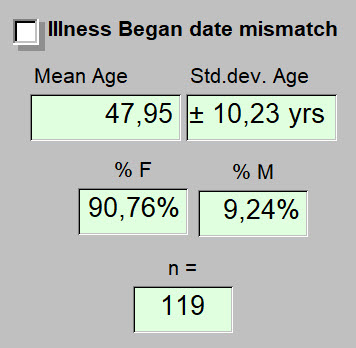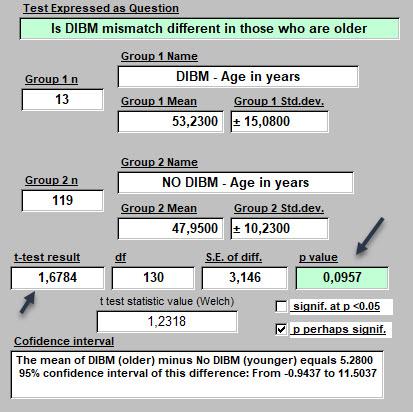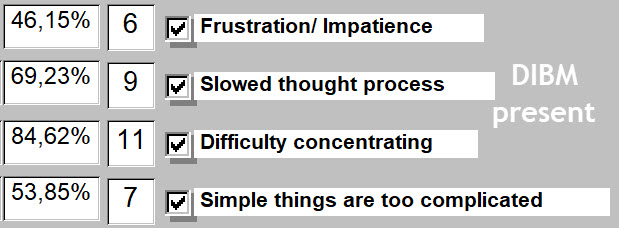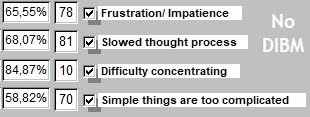Q.19 - Date illness began (2nd asking)
LTCOVID.com
Thanks for visiting!
To translate this page, select your
language from the dropdown menu below:
Qestions 3 and 19 are a matched pair.
They ask the same question:
"Q.3 Provide a date for when you think this illness began"
"Q.19 Now that you have been ill with this, what date would you give for when you first became ill? (This is your estimate of the start. Probably not the date when you were told you had COVID-19 by a doctor or someone else). Enter your 'illness started on ...' date below."
The purpose of these questions were first, to obtain an important answer.
And secondly, to test for consistent responses within the questionnaire.
It was part of the grading process for each questionnaire that was "returned" after completion.
15 questionnaires (11.1%) had a date mismatch for these two questions.
2 skipped one or the other question (perhaps believing a response had already been given?).
These 15 questionnaires had a mean "score" on a 0 to 5 scale mentioned before, of 3.447±1.544.
2 of these were also missing a Diagnosis Date.
Here are the 13 error pairs ...
Below a summary of these mismatches:
5 were close to being the same date and were issued pardons.
The differences ranged from -5,995 to 303 days off.
A mean error for the absolute values of these date differences is 543±1641.65 days
What might explain this?
Age differences might.
Those with the mismatch:
Respondents without the mismatch:
Were these mean ages different?
Those in the Date Illness Began Mismatch Group were older than those respondents with no such mismatch. Since this was a small subgroup (13, or 9.85%), a p-value for this difference in mean age was considered to be probably significant at p = 0.0957 for this two-tailed, unpaired Student's t-test.
Gender differences to explain this date mismatch, were not significant.
How about the disease itself?
Since confusion and frustration are also part of the responses given by many respondents, were these different in these two subgroups? Perhaps the actual cause of these date errors? "brain fog"?
Here are the frequencies of problems that might impact on completing a questionnaire.
First the group with the Date Illness Began Mismatch :
Clearly, these are important frequencies.
But are they different from all respondents without the DIB Mismatch?
Although those committing the error were less frustrated and impatient than those who did not omit a Date Illness Began entry, none of the differences in these potential problems influencing questionnaire completion were statistically significant.
A final possible explanation?
Perhaps they did it on purpose?
Simply to throw a monkey wrench into the machinery of our questionnaire?
This possibility was quickly dismissed, since our respondents are all much too nice a group to do that.
We love our respondents, feel their pain, and are doing everything we possibly can to relieve their suffering.
If you think this questionnaire has no part to play in compassionate care, you are wrong.
And never dismiss or throw away data. Any response given is pure gold. Even if it's off by 5,995 days.
<<<< Previous page
Q. 20 - Date diagnosed with the COVID-19 illness >>>>>
A découvrir aussi
- Q. 25 - Date when this illness became a thing of the past
- Q. 29 - Breathing issues, breathing differently
- Q. 32 - Are you currently more attuned to changes in physical status ?

